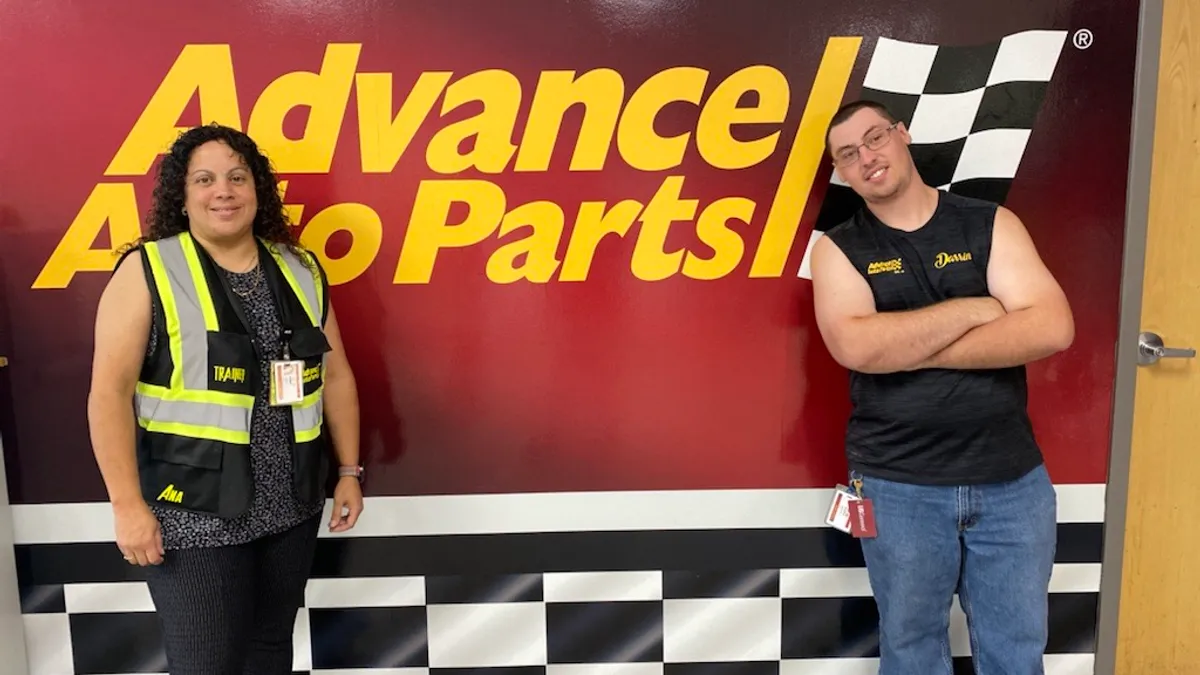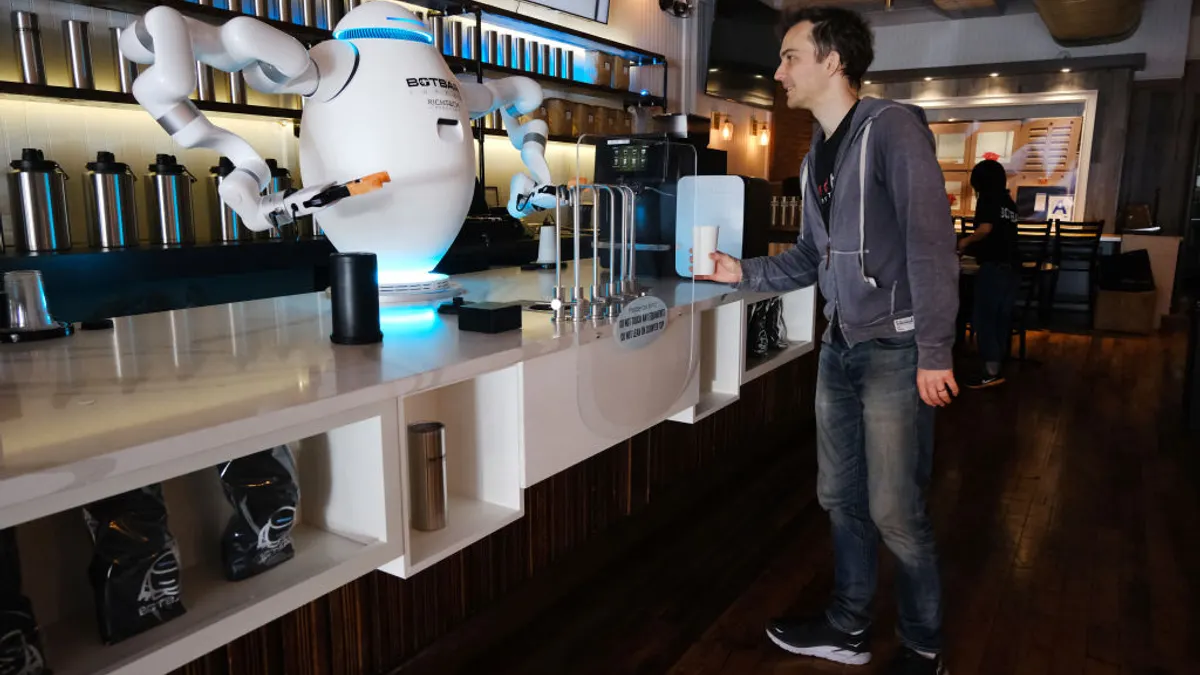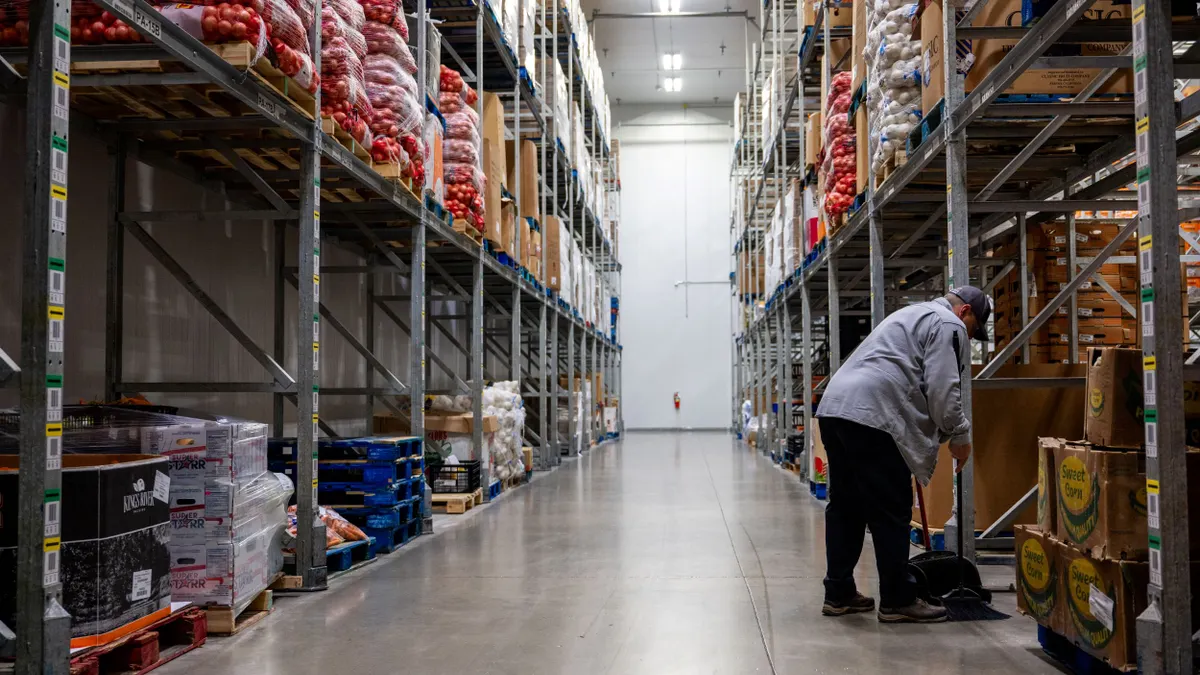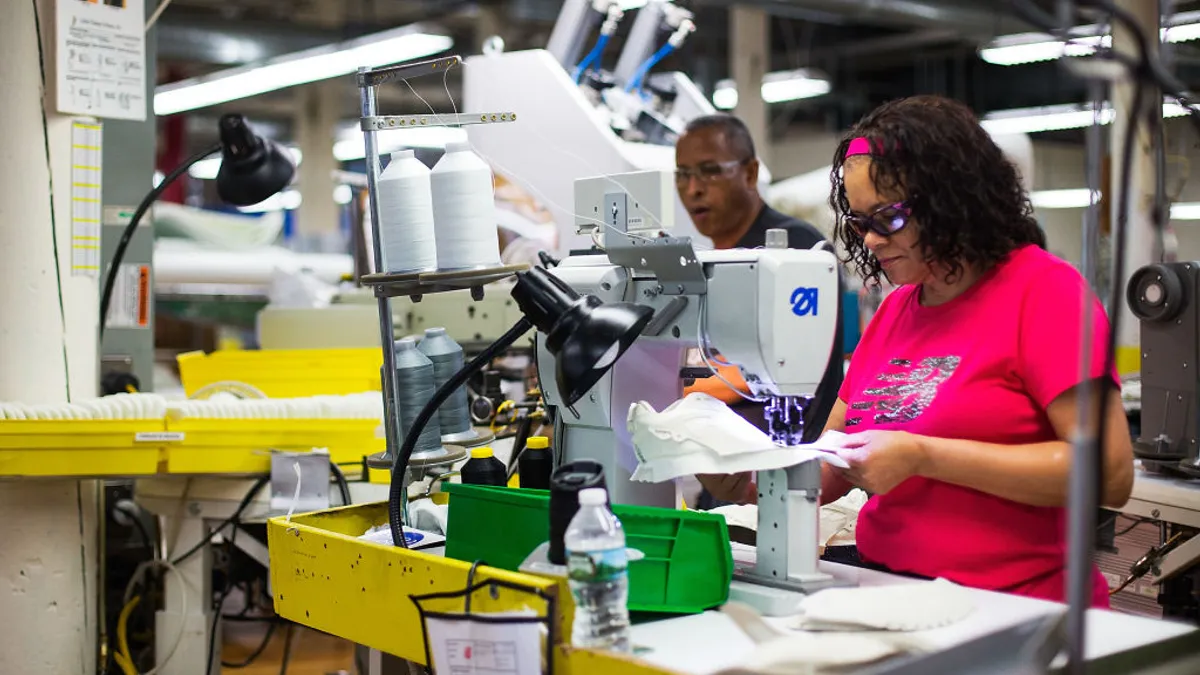James Emmett preaches the increased retention, workplace safety and other benefits that workers with disabilities bring to distribution centers.
Emmett's consulting firm, James Emmett & Company, tripled its revenue last year — and he expects to triple it again in 2022 — as he helps more employers launch disability inclusion programs to supplement a warehouse labor market that's "tighter than it's ever been, by far."
The difficulty filling warehouse jobs amid historic levels of e-commerce volumes is increasingly opening doors to people with disabilities. More companies are adopting inclusion programs as part of their labor strategy, said Emmett, who has consulted with Walgreens, PepsiCo, UPS and Advance Auto Parts.
"We have really found a very aggressive receptivity," Emmett said. Third-party logistics providers and retailers alike are particularly interested as they seek to fill hiring gaps. "It's really skyrocketed."
Emmett, who was born without a left hand and has two daughters with disabilities, said disability recruitment programs improve employers' training and communication with disabled and non-disabled workers alike, which makes workplaces safer for all.
"Not only have [employers] received good staff, but they've become better operators," Emmett said. "It's not just for our folks, right? It's for everybody."
'A great, largely untapped resource for talent'
Advance Auto is accelerating efforts to hire people with disabilities as many employers struggle to fill jobs in warehouses, distribution centers and other facets of their supply chains, said Eric Schaeffer, its diversity, equity and inclusion program manager.
About three years in, the company has hired more than 360 workers with autism or who are deaf or hard-of-hearing through the program, which is in place at 16 of its 44 distribution centers. Schaeffer said he is planning to expand the initiative this year.
"This is a great, largely untapped resource for talent out there, and with everybody needing that talent, it just makes sense," he said. "It makes sense for your company, it makes sense for your community, to really lean in and find that talent wherever you can right now. … We're nowhere close to done."
Workers with a disability have long been underemployed
Darrin Masters, a warehouse associate at Advance Auto's distribution center in Kutztown, Pennsylvania, was hired in August 2020 through the program.
The 22-year-old, part-time worker's first assignment was enhanced cleaning of the facility. But he has since been trained for other jobs, including warehouse security guard, and now focuses on adjusting product inventory in the warehouse for location accuracy.
"I get along really well with everyone working here," Masters said. "My teammates help me a lot, and I also help them."
Despite benefits, stigma impedes more hiring in industry
Bias is at the root of why such programs have not been more widely adopted, said Haley Moss, a Florida-based neurodiversity advocate.
"A lot of people before really had this idea of what people with disabilities can and cannot do," Moss said.
Such biases can be pronounced in the distribution and logistics industries because the jobs often require lots of physical work and facility operators tend to be metrics-oriented, Emmett said. "There's that stigma of, 'People with disabilities can't keep up, and my numbers are going to go down.'
"It's just the complete opposite, especially with people with invisible disabilities," he said.
Moss, who has autism, said workers with disabilities, regardless of the workplace or role, bring far more value to companies than just a public relations boost. Navigating a world "that doesn't have you in mind" drives innovation, she said.
People with disabilities are not a monolithic group, Moss said, but if they are supported and treated well, they tend to be more loyal employees than their non-disabled counterparts.
"When someone is actually good to you, you extremely value that," she said.
Boosting innovation and retention by fighting ableism
Companies can use the increasing automation in their distribution centers to make jobs more inclusive and attainable for people with disabilities and in general, said Natalie M. Scala, director of supply chain graduate programs at Towson University in Maryland.
"Why not?" Scala said. "We have a very emerging need right now."
Hiring people with disabilities is more than a way to plug the supply chain industry's labor gap. It's an opportunity for companies to think outside the box and match people with jobs where they can thrive, Scala said.
Moss cautioned against viewing disability inclusion as a short-term solution.
"It should be a long-term investment," Moss said. "Once they are integrated into your workforce, they should be permanent fixtures."
While workers with disabilities offer tons of benefits to their companies, requiring a business case to hire them overlooks a broader concern, Moss said: People with disabilities are people.
"All of us want to be happy," Moss said. "We want to be successful, whatever that means to us. We want to feel that we have a purpose. We want to be included in society. For a lot of people with disabilities and neurodivergent people, that is having a job or having the ability to get a job — or even leave a job, to have that freedom to be able to go somewhere else."






















